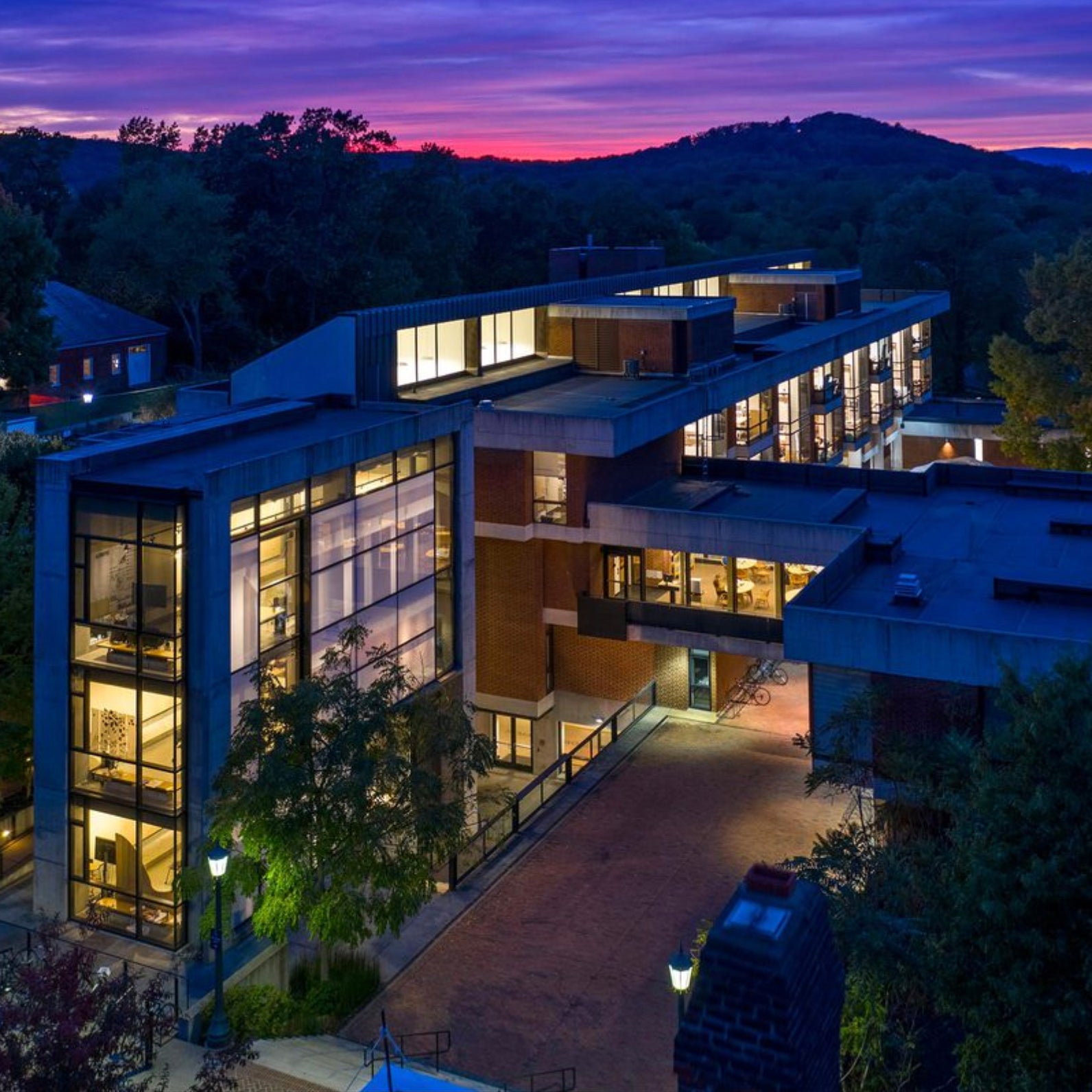
A-School faculty lead translational research as part of Decarbonization Corps
UVA's Environmental Institute (EI) launched a new initiative in 2023 called the Decarbonization Corps to increase the pace of decarbonization through innovative faculty-led research. Each year, EI supports translational research projects that are conducted by a team include one or more faculty leads, a practitioner and a student intern. Decarbonization Corps projects focus on the innovation and entrepreneurship needed to drive systemic change to reduce or eliminate carbon dioxide emissions from the environment. The institute has partnered with "UVA Innovates," a broader effort to catalyze entrepreneurship and innovation leading to the creation of novel ventures.
Now in its second year, three of the six new research projects included in the Decarbonization Corps are being led by School of Architecture faculty. We asked each to share more about their industry partners and goals for impact.

BIOBASED PLASTICIZERS FOR THE FABRICATION OF LOW-CARBON SHAPE-OPTIMIZED CONCRETE STRUCTURES
Mohamed Ismail, Assistant Professor of Architecture
with Air Products
This project advances the decarbonization of building construction through the adoption and processing of biomaterials into plasticizers, enabling the fabrication of shape optimized concrete structures.
Research has shown that a concrete structure’s embodied carbon can be decreased over 60% through shape optimization, while using readily available fabrication methods and code-compliant materials. However, due to the tendency of shape optimization to reduce a structural element’s dimensions, these designs are more sensitive to issues of formwork and reinforcement congestion and fabrication tolerances, preventing industry adoption of new shape optimization methods.
The project team aims to develop and test the integration of bio-based plasticizers in order to eliminate the need for carbon-intensive admixes in concrete construction. To do so, they will partner with Bryan Berger, Associate Professor of Chemical Engineering, who has developed a bio-plasticizer in collaboration with Air Products, founded in 1940 with operations in 40 countries and employing over 22,000 individuals across the globe. Air Products is a leader in key growth markets such as semiconductor materials, refinery hydrogen, home healthcare services, natural gas liquefaction, and advanced coatings and adhesives. For over 30 years, the company has worked collaboratively to find innovative solutions to the world's most significant energy and environmental sustainability challenges.
Assistant Professor Mohamed Ismail is director of the Open Structures Research group that advances structural design and contextual fabrication methods that may enable global sustainable development.

MANUFACTURING MASS TIMBER
Katie MacDonald and Kyle Schumann, Assistant Professors of Architecture
with Softwood Lumber Board
This project will conduct market research and customer discovery, to identify paths to commercialization for the UVA robotic sawmilling technology and the new engineered softwood timber building products it can manufacture.
The faculty leads, MacDonald and Schumann, are pioneers in new construction assemblies utilizing renewable, carbon-sequestering materials. Recently their project team developed a custom robotic bandsaw sawmill used to create lightweight, porous, structural wood panels that serve as a demonstration of the fabrication technology's capacity toward introducing new timber building products. The Decarbonization Corps program will enable them to plan for future industry partnerships and entrepreneurial endeavors by focusing ongoing research and prototyping toward timber building products that can be adopted and used in practice.
The research team will map and visualize the industrial timber landscape, connect with potential partners, and analyze the opportunity space within this wide-reaching industry. They are partnering with Reed Kelterborn, Director of Education at the Softwood Lumber Board, an industry organization that promotes the use of softwood lumber in construction. Softwood Lumber Board runs educational programs and enhances the research team by providing expertise in timber pipelines from forest to construction site.
Assistant Professors Katie MacDonald and Kyle Schumann are co-directors of Before Building Laboratory — they engage in emerging technologies to work with natural materials and processes in new ways, reframing the relationship between biology, technology, and authorship.

AFFORDABLE LOW-CARBON HOUSING: NAVIGATING CARBON, RISK, AND DURABILITY
Jeana Ripple, Associate Professor of Architecture
with True Ground Housing Partners
This project investigates how tax-credit financing can facilitate the construction of durable, low-carbon affordable housing.
This project evaluates the existing buildings and maintenance practices of a nonprofit Affordable Housing partner in Virginia in order to learn how tax-credit financing can contribute to the low-carbon affordable housing. The project team will focus on an assessment of building construction types and warranty lifespans, maintenance practices, operational energy efficiency, and environmental risks. Their efforts will help to determine if current metrics accurately reflect the long-term carbon impacts of building materials and how changes in construction practices might alter the carbon benefits of renewable resources in this market.
The team is collaborating with True Ground Housing Partners, a nonprofit developer based in Northern Virginia (formerly Arlington Partnership for Affordable Housing). The project aims to empower affordable housing developers by providing greater analytical insights and exploring innovative policy solutions to prioritize carbon efficiency and longevity in affordable housing construction and renovation.
Associate Professor Jeana Ripple's recent research has focused on previously overlooked connections between building material regulations and factors such as economic disinvestment patterns, human and ecological health, job accessibility, spatial dynamics, adaptive capacity, and lifetime embodied energy.


